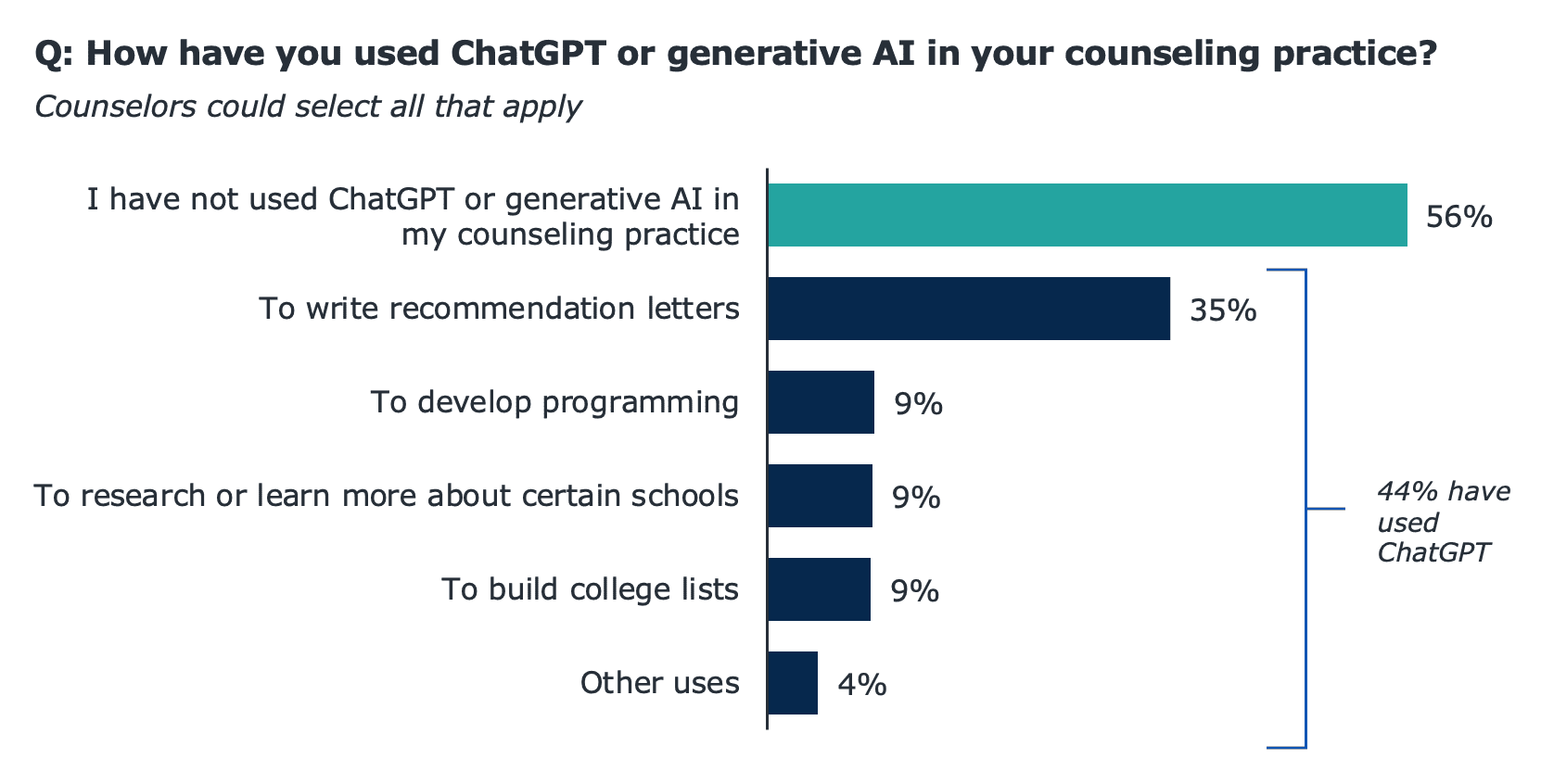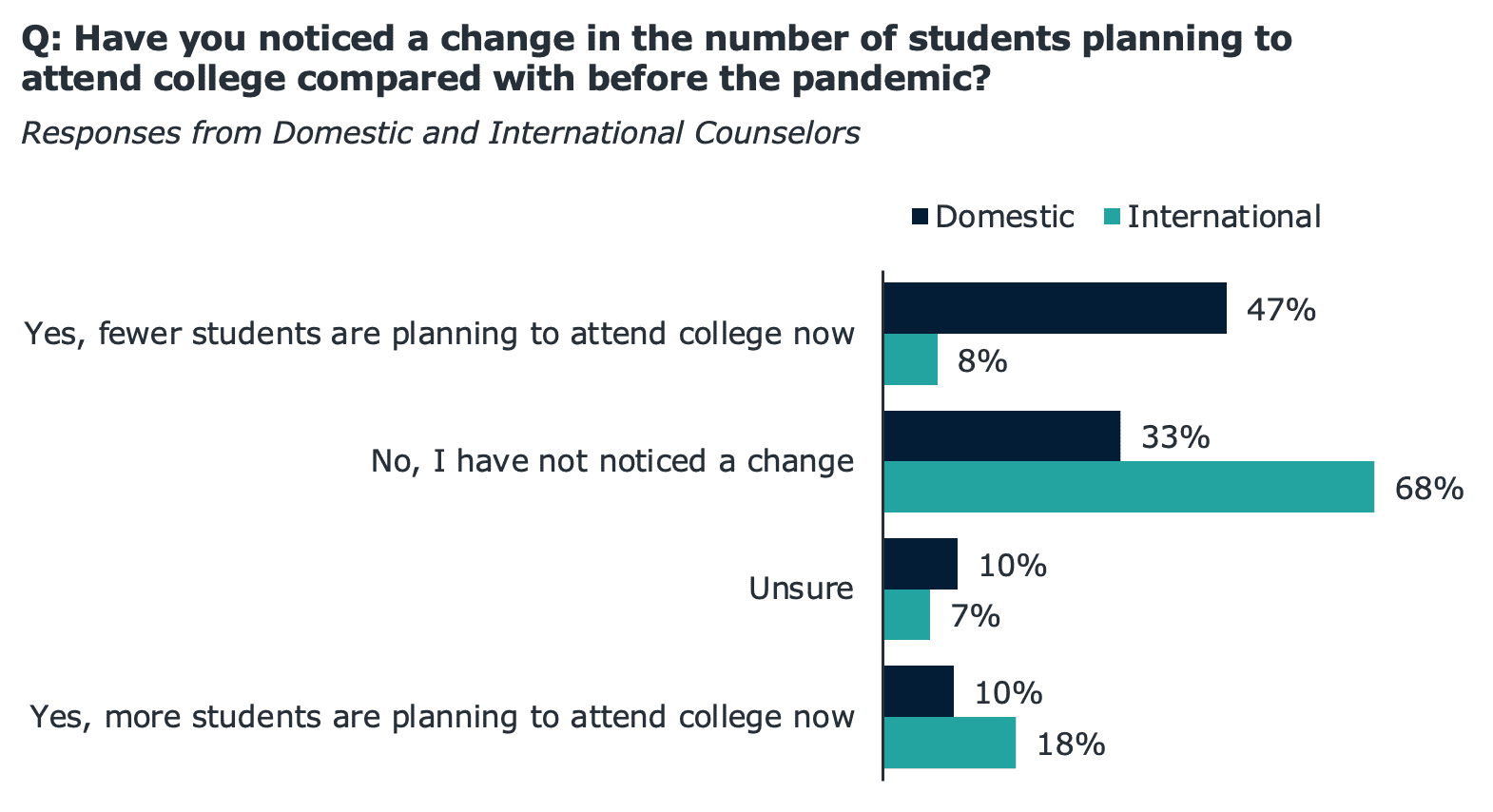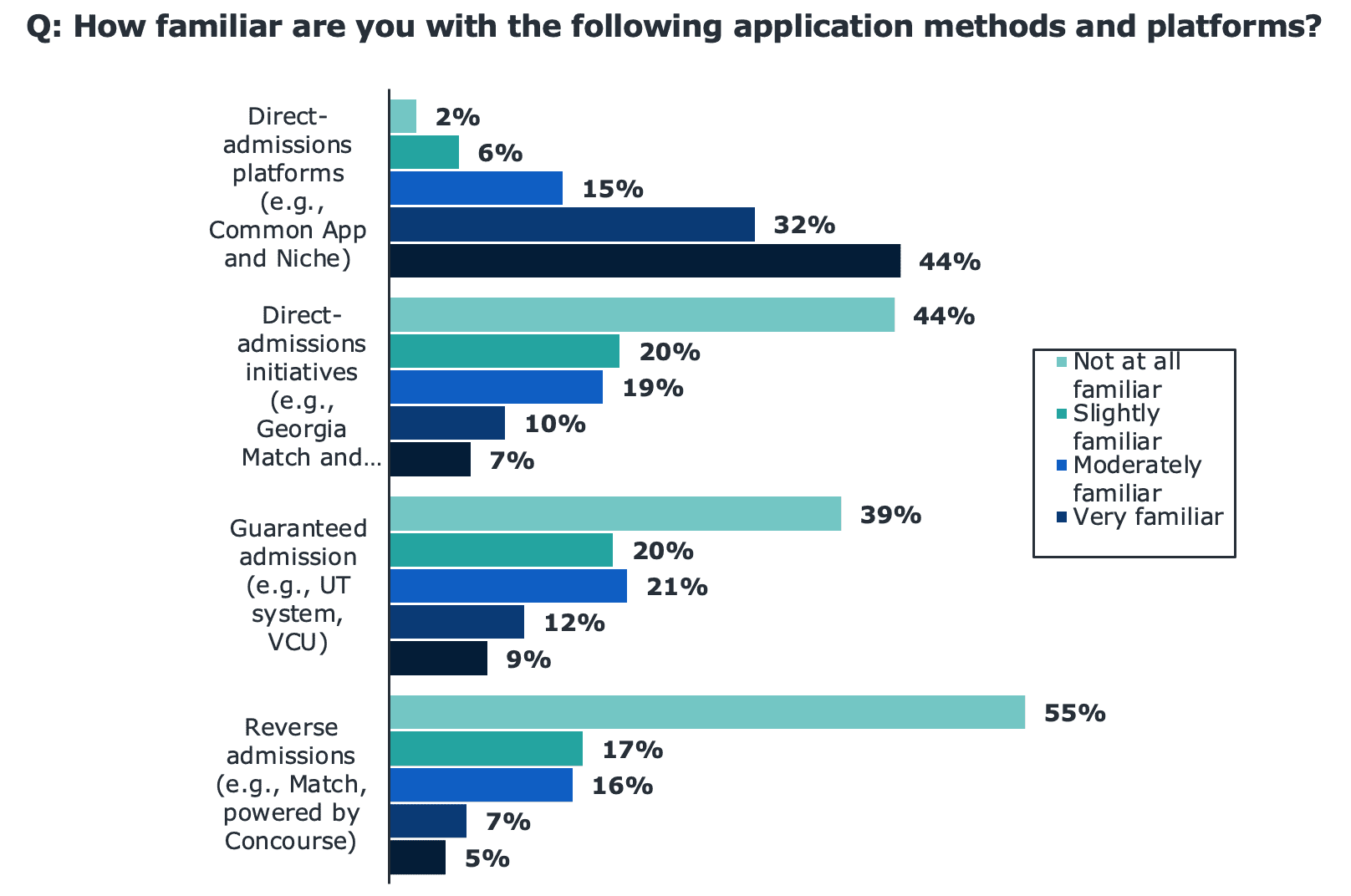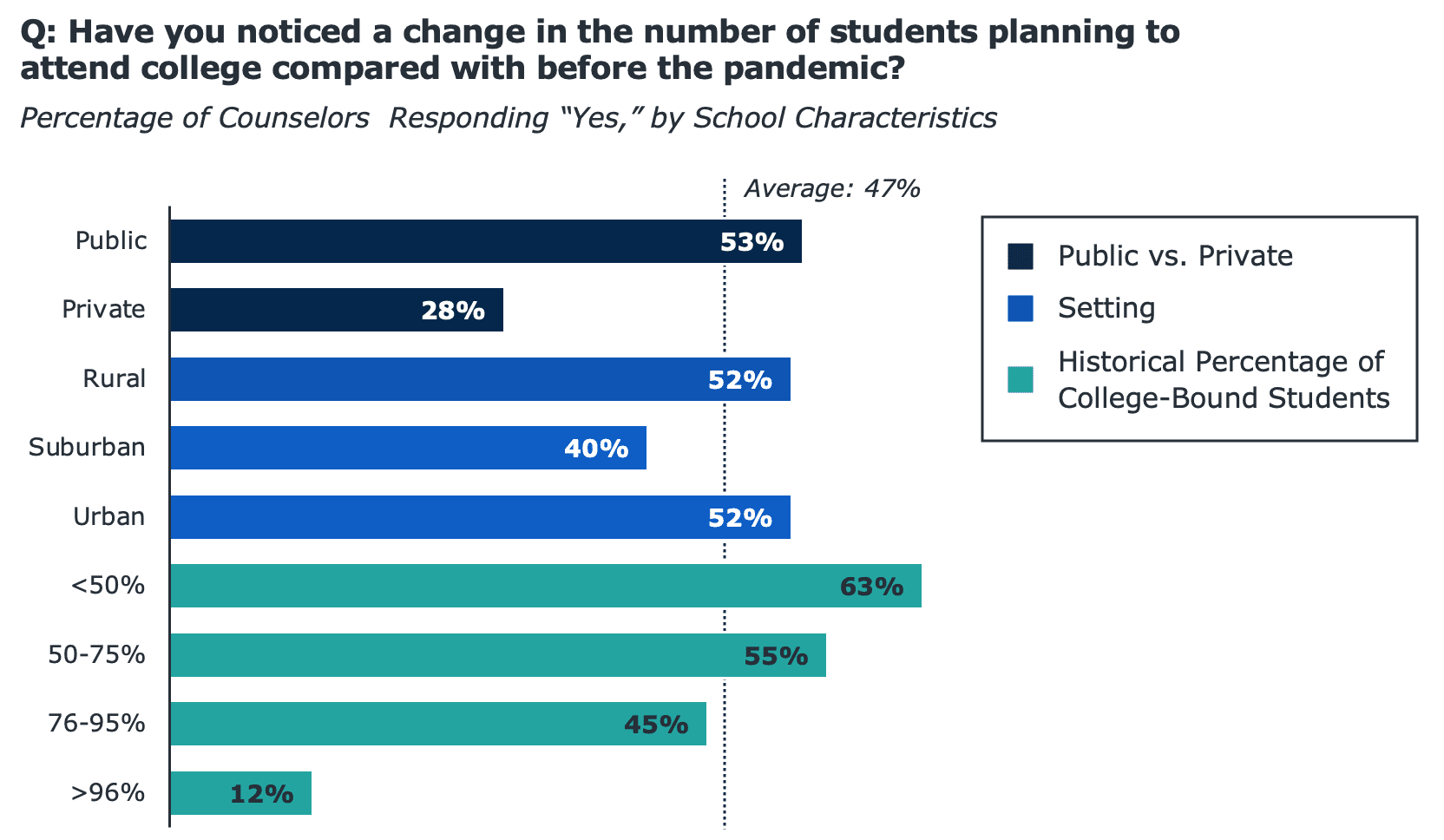Three ways recruitment has changed in 2024, according to our new high school counselor survey
High school counselors have a front row seat to changing student and family attitudes about college, and their insights are invaluable. Which is why, every year, we survey high school counselors about their workload, well-being, and perspective on changes in student behavior. This year’s survey sheds light on some of the top shifts currently taking place in recruitment.
Access Our Full Findings From the 2024 Counselor Survey
Trend #1: About half of counselors are using ChatGPT or similar tools
One of the main themes that emerged from our survey is that counselors have enormous workloads. They estimate spending about 70% of their time on non-admissions-related work, and 65% of counselors report having experienced professional burnout in the past four years.
The reality of challenging counselor workload and burnout is, unfortunately, not a new state of affairs. However, counselors now have new, powerful tools to make their work more efficient in the form of ChatGPT. Nearly half of counselors reported using ChatGPT or generative AI, primarily for writing admissions letters, with counselors who handle more than 85 students being the most likely to do so. Other uses included developing programming, researching specific colleges, and creating college lists.

While I’m heartened to see that counselors are finding ways to make their jobs a little more manageable, this data suggests to me that colleges should take a hard look at any recommendation letter requirements. We already know that these letters can be a barrier in the application process for students. I think it’s worth asking yourself: does the fact that you will likely receive AI-generated recommendations impact the role they currently play in your admission process?
Trend #2: 47% of counselors report a drop in students planning to attend college compared to pre-pandemic
At EAB, we’ve been closely tracking the trend of rising non-consumption, which our counselor survey sheds further light on. About half (47%) of counselors in US-based schools reported that fewer students are planning to attend college now compared to before the pandemic. By contrast, in our survey of international counselors, only 8% reported the same.

Read More on the “Great Opt-Out” and What Enrollment Leaders Can Do About It
Within the United States, counselors from public, rural, and urban schools were most likely to report decreases in the share of students planning to attend college post-pandemic. Unsurprisingly, schools with large historical percentages of college-bound students were least likely to report changes in students’ likelihood to attend college.
Trend #3: Direct admissions is gaining in popularity
With the growth of new admissions pathways in recent years, we asked counselors about their familiarity with direct admissions platforms, direct admissions initiatives, guaranteed admissions, and reverse admissions. Of those new pathways, counselors were most familiar with direct admissions platforms, which is likely due to the popularity of the Common App. Counselors with larger caseloads were most likely to be familiar with direct, guaranteed, and reverse admissions.

Amid students’ increasing doubts about the value of college, these new admissions pathways can encourage students who are hesitant about attending college. By eliminating barriers in the college process, direct and reverse admissions can build momentum toward college attendance among students who may be on the fence.
I found these trends fascinating, and to me there’s a clear takeaway for leaders as enrollment patterns continue to evolve: it’s more important than ever to build strong two-way communication with high school counselors. Given counselors’ large workloads and high burnout rates, I recommend meeting them with empathy and offering them avenues to share their concerns with you. Clear, streamlined communications and counselor appreciation programs can also promote strong relationships with busy counselors.

More Blogs

Students are engaging earlier. Enrollment strategies should follow.

Empower high school counselors to strengthen your recruitment pipeline

